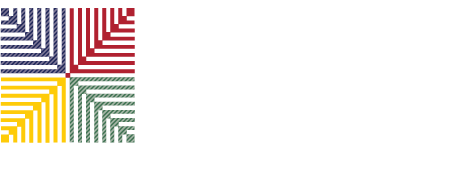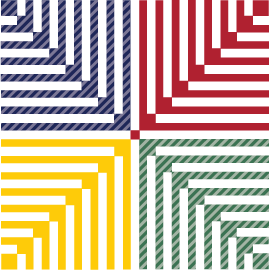In surrealist drama an imprisoned Palestinian artist (Khaled) and his Israeli interrogator engage in a battle of minds over matter – of creativity over bars and chains. Habie spoke to us about the story behind her dreamlike film.


JH: Mainly the feedback I’ve been getting from audiences is that it’s a very one-of-a-kind voice to come out of Palestinian cinema. And it’s true – I’ve never seen a Palestinian character like Khaled, and I’ve never seen an Israeli character Eyal. Both of them I think are pretty groundbreaking.
BPFF: The characters of Khaled (Ali Suliman, ) and Eyal (Guy El Hanan) both try to deal with the context of military occupation using their artistic talents. Can you talk particularly about Eyal and his jealousy of Khaled’s talent and imagination?
JH: They are both artistic people, with a lot of creativity. Eyal, having given his life over to the military, has lost a lot of his artistic command. Khaled, being a real artist in the truest sense of the word, inspires a lot of jealousy, inspiration, and creativity in Eyal. But what should be – in a normal, non-militarized environment – a meeting of two great creative minds becomes a meeting of one creative mind waging war on another’s.
BPFF: Tell us more about Guy El Hanan who plays Eyal, the Israeli soldier who tortures and interrogates Khaled (Ali Suliman).
JH: Eyal is a wonderful, badass Israeli. He speaks fluent Arabic and he lives his life with great appreciation and acceptance and political consciousness of Palestine. He learned Arabic not through the army like most Israelis – he learned it studying acting in Paris with his Lebanese friends. He has a real artistic command of the language and the dialects from the different regions.
When we were working on the characters, he would use his Arabic based on what he was trying to get in the scene. So if he was trying to speak super elitist artist and meet [Khaled] on that level, he would speak fusha [classical] Arabic. And if he was trying to show that he knows something super intimate about Khaled, he would use Khaled’s own colloquial dialect.
He definitely used language as a tool of torture, as a war criminal, as an occupier of the language. And this everyday use of cultural and linguistic appropriation by Israelis is something that is done with the best of intentions, and the worst of intentions.
BPFF: Mars at Sunrise is inspired by a true story.
JH: Yes. Through the process of doing creative and documentary film work in Palestine, I met the incredible who inspired me to make the film Meet Me Out at the Sea, which talks about how he went from living in Ramallah to being exiled in Paris. During that time, I learned of a really delicate story that he told me about his interrogation, and how he had been asked to collaborate and say which creative intellectuals were working with the different liberation movements in Palestine. I thought that military usurps the artist’s creativity and tries to make it into a weapon. So that was one of the stories that really inspired me. The character of Eyal is a blend of many many young Israelis who are forced to give their most creative years to the army. He’s a synthesis of many Israelis whom I have known.
Every scene in the film is in some way inspired by a true story. The artwork, the soldier being asleep at the checkpoint – that’s a real story – and the interrogation scenes are, word for word, Hani’s testimony. They really told him about his sister having a baby; they really broke his left hand; and they really asked him those same 20 questions a million times. Hani was really in jail for a little over two months.
BPFF: In listening to the film’s soundtrack, we hear Russian, Yiddish, Hebrew, Farsi, Arabic, and English throughout the film. Can you talk more about the musical pieces and their relation to the various thematic elements we experience as we watch?
JH: The film was written from the soundtrack, rather than the other way around. I took an hour of footage from one of the documentaries of mine from before, and gave it to this incredibly talented music producer, Tamir Muskat. I told him, “Give me a group of musicians who are going to be brave and willing to tackle tough political things with me.” And he got super interested and brought his own consciousness, which was a very solid political foundation for us to work on.
He produced 15 tracks based on that footage from my documentary – responding creatively to it. We invited musicians from all over, and for five days, we made music together, nonstop around the clock. And when that music was finished, I wrote the script for Mars at Sunrise from it. I wrote the rhythm of the relationship between Eyal and Khaled based on the music I heard from that process.
BPFF: Mars at Sunrise explores occupation of the imagination, as opposed to occupation of the physical. Can you talk more about how the relationship between Khaled and Eyal explores the dangers of cultural and artistic resistance to the militarization of the self and others?
JH: Why the character of Khaled is my hero is because he is subjected to torture, like many Palestinian men are, and he doesn’t allow that violence to turn him into a victim. I think that creative resistance on a national or movement level is important, and creative resistance as an individual is also important because if you are resistant creatively within your own body, you’re going to be talking from your center. You’re going to be experiencing life from your center. And no one can come in and militarize you, be it for any power that be.
I think that creative expression is really important. When you look at Palestine, Palestinians are so oppressed on a daily basis by the occupation that their creative choices are often cut short. You start something, and it’s cut short. Everything is interfered with. Everything is difficult. I think imagination is incredible creative resistance. An un-occupiable imagination is a really dangerous thing, and I think that’s why Khaled is so provocative to his captors, it’s because his imagination is un-occupiable.
— Alia Gilbert for BPFF
is BPFF2014’s Closing Film and screens on Sunday, October 26, 2014 3 pm, at the Museum of Fine Arts, Boston. Director Jessica Habie will be in conversation following the film. View full schedule and buy tickets

